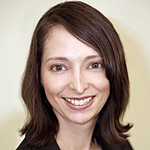Don’t Put Your Evaluations Where the Sun Doesn’t Shine
This summer, I spent quite a bit of time thinking about how to improve the impact of evaluations, particularly those sponsored by foundations. Don’t get me wrong—I also spent time enjoying the summer sun with family, so it hasn’t been all work and no play! But in my work life, helping foundation evaluations also get their moment in the sun has been a recurring goal.
At the start of the summer, I presented Candid’s inaugural #OpenForGood awards at the Grantmakers for Effective Organizations (GEO) Learning Conference to the Rockefeller, C&A, and Ian Potter foundations for their commitment to creating a culture of learning by opening up the results of their published evaluations. The winning foundations each demonstrate an active commitment to open knowledge, field leadership, and incorporating community insights into knowledge sharing work.
The award, part of a larger #OpenForGood campaign, includes a set of tools to help funders work more transparently including a GrantCraft guide about how to operationalize knowledge sharing, a growing collection of foundation evaluations on IssueLab, and advice from peers in a GlassPockets blog series.
Some specific practices I’ll share are that the C&A Foundation routinely packages its detailed evaluations into concise bullets and summary blogs for the world to see and they do this for both favorable and unfavorable results. The Rockefeller Foundation has developed an internal practice in which “…the foundation pre-commits itself to publicly sharing the results of its evaluations - well before the results are even known.” This ensures that even if the evaluation reports unfavorable findings, the intent is to share it all. And finally, the Ian Potter Foundation consistently publishes collective summaries from all of its grantee reports for each portfolio as a way to support shared learning among existing and future grantees. It’s a refreshing reinvention of the traditional grantee report, placing priority on collecting and sharing the kinds of information that will be helpful to other practitioners, rather than just being filed away inside the foundation, where the sun doesn’t shine. You can learn more winning #OpenForGood practices in an upcoming webinar we are offering in partnership with GEO.
Post-vacation (after the family wedding, outdoor concerts, and beach time), in partnership with Ashleigh Halverstadt, senior evaluation and learning officer at the S.D. Bechtel, Jr. Foundation, I’ve had the pleasure of preparing to co-facilitate an “action team” for the Funder and Evaluator Affinity Network, a national network of evaluation professionals working to deepen the impact of evaluation and learning in philanthropic practice. We’re asking questions like:
- Does your foundation have formal policies in place that support the sharing of evaluation knowledge? If so, what are they?
- Do you host convenings or gatherings to promote the dissemination of knowledge? If so, what frameworks have worked best for these offerings?
- How does your institution make a connection between adapting and sharing knowledge and efforts to improve diversity, equity, and inclusion in philanthropy or in evaluation practice?
- Have you developed a way to measure the impact of the evaluations you commission and share that others could adapt?
- Do you have any good case examples demonstrating how knowledge that you or someone else shared advanced the fields in which you work?
If these questions resonate for you because your foundation has made strides in sharing evaluations or other forms of knowledge, let me know so that we can give your practices their moment in the sun! Perhaps one of your examples will end up being featured in our toolkit, or in a GrantCraft blog, or both!
With gratitude,
Janet

